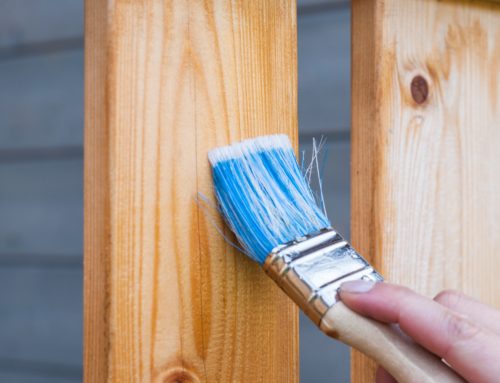By: Lisa Kaplan Gordon Reprinted from HouseLogic.com with permission of the NATIONAL ASSOCIATION OF REALTORS®.
 Even the best vegetable gardeners can forget basics and make rookie mistakes. Here are 7 no-nos to avoid. Even if your vegetable garden is the envy of neighbors, it’s still easy to make rookie mistakes that waste precious resources and growing time. Avis Richards, whose Ground Up Campaign teaches New York City school kids how to grow their own food, reveals the rookie mistakes that all gardeners should avoid.
Even the best vegetable gardeners can forget basics and make rookie mistakes. Here are 7 no-nos to avoid. Even if your vegetable garden is the envy of neighbors, it’s still easy to make rookie mistakes that waste precious resources and growing time. Avis Richards, whose Ground Up Campaign teaches New York City school kids how to grow their own food, reveals the rookie mistakes that all gardeners should avoid.
- Unwise watering. Too much, too little, too hard, too soft — they’re all watering mistakes that’ll wreck your garden. Before adding water, poke a finger a couple of inches into the soil. If it’s moist, save the water; if it’s dry, train a gentle spray at the base of plants. Better yet, wind a drip hose ($13 for 50 feet) through your garden; that way, you’ll deliver moisture to the roots without wasting water on leaves and to evaporation.
- Forgetting to test. Even veteran gardeners forget to test their soil every year to make sure it has the pH and nutrients plants need. For about $10, you can send a sample to your state extension service and receive a complete analysis. Or, buy a DIY test kit at your local garden center. When you know what your soil is made of, either select plants that thrive in that type of earth, or amend soil to match your garden’s needs.
- Planting garden divas. Of course you love summer tomatoes, but they can be tricky to grow during summers that are too hot, too cold, too wet, too dry. So newbies should try growing a couple of tomato plants just for fun, then load gardens with foolproof veggies and herbs, such as beans, peppers, oregano, and parsley. If you must grow a tomato, plant cherry tomatoes that can survive anything summer can throw at them and even yield fruit into fall.
- Raising too much. One cherry tomato plant can yield 80 fruit, and a single zucchini plant can keep your neighbors in zucchini bread through winter. So don’t plant more than you can eat, put up, or share with friends. The National Gardening Association says an edible garden of about 200 sq. ft. should keep a family of four in veggies all summer. If you do grow more than you need, donate it to a local food bank or plan a swap with fellow gardeners.
- Growing everything from seed. Some crops, such as salad greens, radishes, carrots, peas, beans, and squash, are easy to grow from seeds that germinate in a couple of weeks. Experience will tell you that eggplant, broccoli, cauliflower, and tomatoes are better grown from seedlings, which someone else has nurtured for months. Pick plants that are short and compact; avoid leggy plants with blooms that are liable to die on the vine as the plant acclimates itself to your garden.
- Assuming you know. Gardeners often read seed packages and figure they know everything about growing vegetables. Wrong! The more you know about your hardiness zone, soil, weather, insects, and vegetable varieties, the better your garden will grow. So curl up with a good gardening book, and surf the web for garden bloggers that share your passion. Better yet, join a gardening club where you can share tips and seeds.
- Relying on pesticides. Don’t bring out the big guns, which can contaminate the watershed, until you’ve tried less-toxic ways to get rid of garden pests. Ladybugs and praying mantis, which you can buy at garden supply stores, will eat garden intruders, such as aphids and beetles. Non-toxic insecticidal soaps will take care of soft-bodied insects (don’t use if ladybugs are around).
Lisa Kaplan Gordon is an avid gardener, a member of the Fairfax County Master Gardeners Association, and a builder of luxury homes in McLean, Va. She’s been a Homes editor for Gannett News Service and has reviewed home improvement products for AOL.











